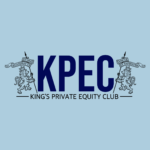
By Joshua Chen, Research Analyst at King’s Private Equity Club
ESG within the financial markets is increasingly important, especially following COP 26 where major financial institutions around the world have pledged to take actions to tackle climate change. An international agreement like this would have ramifications for stakeholders around the world, influencing the climate for investments around the world. In particular, Hong Kong, as an international financial hub is also keeping up with its commitments to shape a more ESG friendly financial environment. This article will explore the developments of ESG regulations in Hong Kong and their effects on Hong Kong licensed private equity funds.
Currently, private equity funds have to be licensed by the Securities and Futures Commission (SFC) of Hong Kong in order to carry out regulated activities stipulated within the Securities and Futures Ordinance (SFO). There are ten types of regulated activities in the SFO, but among them, the most relevant ones to private equity funds are Type 1(dealing in securities), Type 4 (advising on securities) and Type 9 (asset management). Most private equity funds carry out these regulated activities, therefore they are usually licensed by the SFC.
There is a significant private equity market in Hong Kong. In 2017,Hong Kong, with over 400 private equity firms, was ranked second, just after China, in Asia for the total asset under management in the private equity market. Currently many Hong Kong private equity funds have looked to ESG (Environmental, Social, Governance) investments for their portfolios. The ESG landscape in Hong Kong is not as mature as in Europe for example, where 80% of the global ESG market is. However, ESG is increasingly an area of investment interest as the global shift in ESG perception has shaped the view that ESG investments, as well as green and sustainable finance, would create positive returns in the long run for shareholders. This is also supported by the interest of regional governments and regulators to push for climate-related changes.
For example, China has announced it aims to be carbon neutral by 2060, and in 2021 it launched a centralised national carbon trading market which would place oversight on national emissions more strictly. Such a government shift in attitudes on climate-related issues signals more pressure in the private markets for Responsible Investments (RI). With a climate-conscious investment landscape, Limited Partners of PE funds increasingly demand more accountability from the General Partners on ESG risk and opportunities in fund management. This means PE fund managers would need to conduct more thorough target screening and assessment as well as due diligence when identifying investments. They should also develop an ESG reporting framework throughout the lifetime of the fund and make sure that an exit strategy is compliant with ESG principles. While it may be more burdensome for Hong Kong PE funds, it presents more opportunities to attract international investors and lenders who may be well aware of the benefits of ESG investing.
In Hong Kong, regulators have also done more to facilitate the climate transition, in particular with regards to regulating ESG financial investments and instruments. For example, the Hong Kong Exchange and Clearing Limited (HKEX) now requires all Initial Public Offerings to publish ESG disclosure information when listing. Of direct effect to private equity funds would be the recent enhanced disclosure of ESG funds by the SFC in 2021. Some updates of the SFC include: ESG investment strategy, which requires describing the specific approach and methodology used, asset allocation, outlining the ESG focus in the fund, funds tracking.
A further example of the update includes, an ESG benchmark, which needs to be disclosed about how the benchmark is relevant to the fund. These new updates also encompass the new requirement that ESG funds have to publish periodic assessments of how they incorporate ESG elements. All these disclosure guidelines and requirements signal the Hong Kong regulator’s intention to bring Hong Kong up to date with European standards, by aligning ESG disclosure guidelines with the internationally recognised standards published by the Taskforce on Climate-related Financial Disclosures (TCFD).
ESG focused UCITS (Undertakings for the Collective Investment in Transferable Securities) funds seen in the EU have also been recognised as ESG funds in Hong Kong after the SFC considered the European Commission’s Sustainable Finance Disclosure Regulation (SFDR) in compliance with its own guidelines. Funds that comply with articles 8 (a Fund which promotes, among other characteristics, environmental or social characteristics, or a combination of those characteristics, provided that the companies in which the investments are made follow good governance practices) and 9 (a Fund that has sustainable investment as its objective or a reduction in carbon emissions as its objective) of the SFDR would generally be in compliance with the SFC guidelines on enhanced ESG disclosures.
However, private equity funds do not fall under UCITS as they are regulated under the Alternative Investment Fund Managers Directive (AIFMD). It is unsure whether the AIFMD funds’ disclosures requirements will be adopted by the SFC as compliant with its ESG guidelines. However, following the SFC’s address on embracing further alignment with European style ESG disclosure requirements, it is likely that private equity funds under AIFMD would also be recognised as ESG disclosure compliant in the near future. If this is the case, AIFMD private equity funds in Hong Kong with an ESG would have the benefit of compliance without major remodelling of its ESG disclosure framework. However, this would also lead to more competition for PE funds that don’t already comply with the AIFMD as they would have to allocate resources to be on par more onerously for recognition with ESG.
Overall, the bolstering of ESG attractiveness for funds and the macro activities towards a climate transition, as demonstrated by regulators will to support and guide the ESG markets in Hong Kong mean that the private equity industry would increasingly adopt an ESG focus and that an internationally recognised standard of ESG regulation would likely strengthen Hong Kong as a hub for ESG investments in private equity.
Bibliography:
- https://www.eyeonesg.com/2021/07/new-hong-kong-guidelines-on-enhanced-disclosures-for-esg-funds-in-2022/
- https://www.shearman.com/-/media/Files/Perspectives/2019/09/Hong-Kong-Fundraising-The-Private-Equity-Review.pdf
- https://www.ogier.com/publications/hk-sfc-enhances-disclosure-requirements-for-esg-funds
- https://www.sfc.hk/en/Green-and-sustainable-finance
- https://www.dlapiper.com/en/us/insights/publications/2021/07/integration-of-sustainability-factors/
- https://www.intralinks.com/blog/2021/06/how-private-equity-can-stay-ahead-esg-demands-mainland-china-and-hong-kong
- https://www2.deloitte.com/content/dam/Deloitte/ie/Documents/Audit/IE_SustainableFinanceDisclosureReg_Article9.pdf
